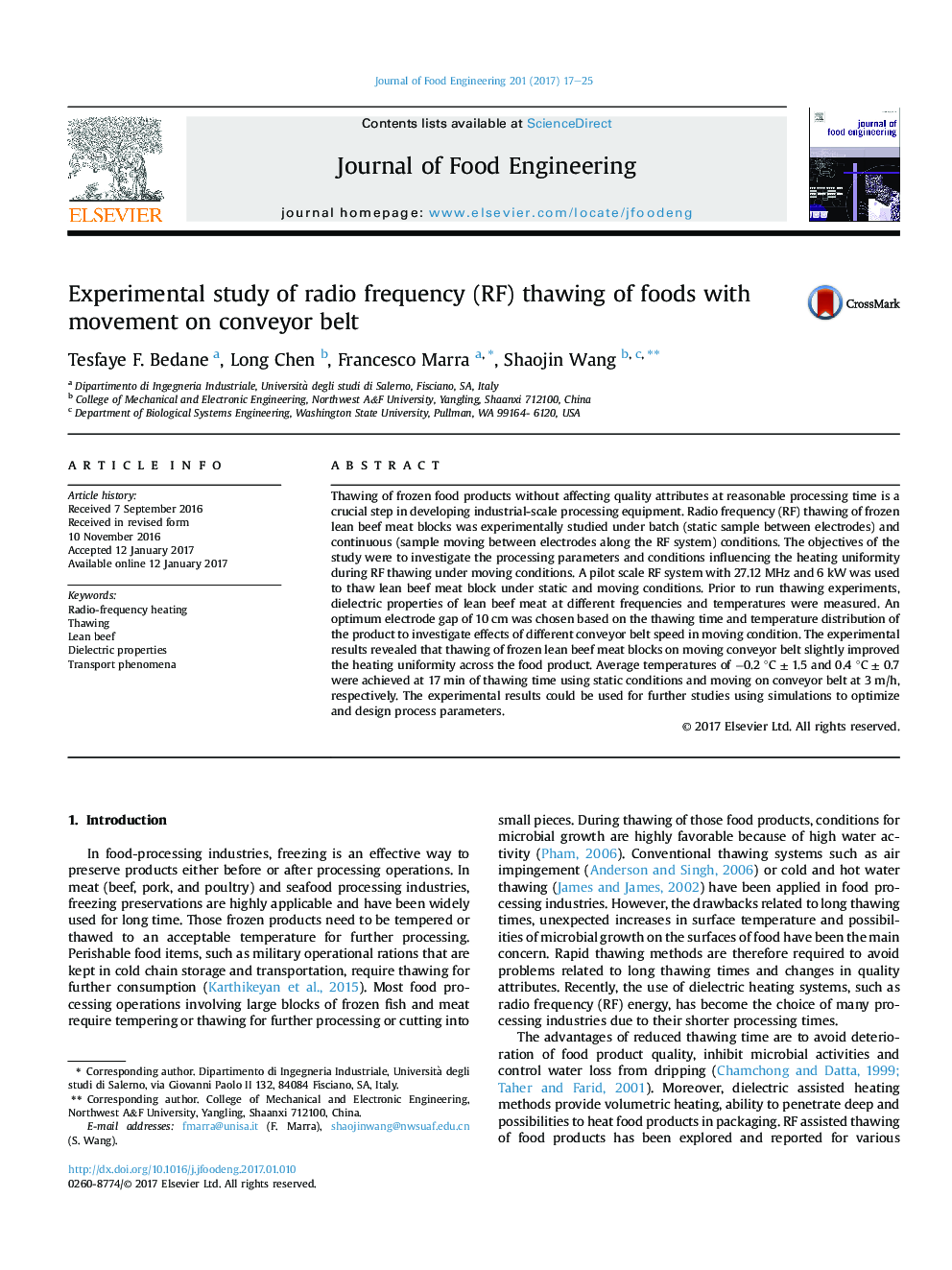| کد مقاله | کد نشریه | سال انتشار | مقاله انگلیسی | نسخه تمام متن |
|---|---|---|---|---|
| 6477569 | 1427100 | 2017 | 9 صفحه PDF | دانلود رایگان |

- Batch and continuous RF thawing of lean beef blocks was performed.
- Dielectric properties of lean beef meat were measured.
- RF thawing using moving conveyor belt improved heating uniformity.
- Conveyor belt speed and electrode gap affected heating uniformity during RF thawing.
Thawing of frozen food products without affecting quality attributes at reasonable processing time is a crucial step in developing industrial-scale processing equipment. Radio frequency (RF) thawing of frozen lean beef meat blocks was experimentally studied under batch (static sample between electrodes) and continuous (sample moving between electrodes along the RF system) conditions. The objectives of the study were to investigate the processing parameters and conditions influencing the heating uniformity during RF thawing under moving conditions. A pilot scale RF system with 27.12 MHz and 6 kW was used to thaw lean beef meat block under static and moving conditions. Prior to run thawing experiments, dielectric properties of lean beef meat at different frequencies and temperatures were measured. An optimum electrode gap of 10 cm was chosen based on the thawing time and temperature distribution of the product to investigate effects of different conveyor belt speed in moving condition. The experimental results revealed that thawing of frozen lean beef meat blocks on moving conveyor belt slightly improved the heating uniformity across the food product. Average temperatures of â0.2 °C ± 1.5 and 0.4 °C ± 0.7 were achieved at 17 min of thawing time using static conditions and moving on conveyor belt at 3 m/h, respectively. The experimental results could be used for further studies using simulations to optimize and design process parameters.
Journal: Journal of Food Engineering - Volume 201, May 2017, Pages 17-25